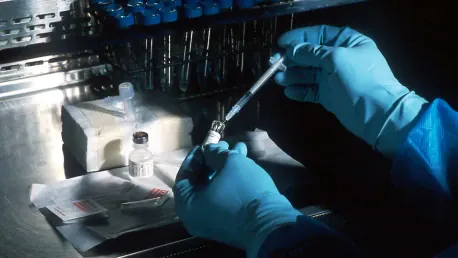The notion of genetically engineering an unborn child’s sexual orientation has stirred debates among ethicists, scientists, and religious groups. This discourse stems from the suggestion that, with advancements in scientific knowledge, it might be possible to determine an unborn child’s sexual orientation and to alter it through hormone therapy. Rev. R. Albert Mohler Jr., president of a Southern Baptist seminary, explores this hypothetical scenario, triggering moral and ethical considerations that challenge both liberal and conservative perspectives. The question of how far science should go in interfering with natural human development has become increasingly relevant as technological capabilities expand.
Scientific Studies on Sexual Orientation
Biological Research on Sexual Orientation
Recent studies at institutions such as Oregon Health and Science University have investigated the biological basis of sexual orientation. One study involving “male-oriented rams” examines the neurological and hormonal factors that might influence sexual preference in mammals. The research provides insight into the biological elements that could potentially be manipulated in humans, raising questions about ethics and the nature of human identity.
Another study at Brock University highlights the correlation between having older biological brothers and an increased likelihood that a man might be homosexual. This phenomenon, known as the fraternal birth order effect, suggests that biological factors contribute significantly to sexual orientation. These studies fuel ethical debates about whether science should intervene in such intrinsic aspects of human development and challenge the traditional understanding of sexuality.
Ethical Implications of Genetic Engineering
The idea of altering a fetus’s sexual orientation through genetic engineering or hormone therapy opens up significant ethical dilemmas. Mohler’s perspective, rooted in anti-abortion and anti-homosexual behavior beliefs, controversially proposes that preventing homosexuality in utero could preempt future moral and social challenges. This stance has sparked widespread criticism, highlighting moral objections from various political and religious quarters.
Critics argue that attempting to “prevent” homosexuality infringes on individual rights and disregards the complexity and innate nature of sexual orientation. The debate extends to whether such interventions are ethically comparable to selective advancements like human growth hormones and gene therapies used in adults for medical purposes. The core question remains: how far should humans go in manipulating their genetic makeup?
Technological Advancements and Their Ethical Boundaries
Genetic Screening and Selection of Embryos
Advancements in genetic screening technologies now allow prospective parents to choose against embryos with specific genetic diseases, subtly shifting the paradigm of reproduction. While traditional methods of having children were straightforward, the ability to screen for genetic markers and select embryos based on desired traits introduces complex ethical considerations.
Selecting embryos based on genetic health criteria raises concerns about eugenics and the possibility of creating “designer babies.” This practice questions if choosing embryos for health reasons significantly differs from altering genetic traits to meet specific preferences, such as sexual orientation. The impact of these choices on human diversity and the moral boundaries of genetic manipulation are subjects of ongoing debate.
Long-Term Implications of Genetic Engineering
The long-term implications of genetic engineering extend beyond individual cases, potentially affecting the entire fabric of human society. Should society allow genetic intervention in traits like sexual orientation, it could lead to unforeseen social and moral consequences. Altering what is traditionally viewed as inherent human characteristics may affect identity, societal norms, and the acceptance of diversity.
The debate over genetic manipulation touches upon broader ethical principles, including the sanctity of nature and the extent of human intervention. Decisions made around such technologies today will shape the future societal landscape, sparking discussions about the acceptable scope of scientific advancements. As capabilities grow, so do the responsibilities and ethical challenges faced by scientists, policymakers, and society as a whole.
Diverse Perspectives and Moral Boundaries
Religious and Political Responses
The discourse on genetic engineering to alter sexual orientation encompasses a diverse range of religious and political perspectives. Traditional religious conservatives often reject the notion that sexual orientation is an inherent trait that can be modified, emphasizing a belief in divine creation and natural development. From this standpoint, any attempt to alter intrinsic human characteristics is viewed as morally unacceptable.
On the other hand, liberal perspectives might advocate for the rights of individuals to remain unaffected by such invasive techniques. They express concern over the ethical ramifications of unmaking someone’s sexuality, arguing that it infringes upon personal identity and autonomy. This polarized debate exemplifies the complex interplay between ethics, science, and societal values.
Ethical Questions and Future Considerations
Continued discussions surrounding genetic engineering to alter human traits like sexual orientation emphasize critical ethical questions. How far should society go in manipulating genetics to fit predefined notions of normalcy or morality? Should intrinsic aspects of identity be preserved regardless of scientific capabilities? Answers to these questions will influence the direction of future research and policy-making.
As technology progresses, it is crucial to establish ethical frameworks that balance scientific possibilities with moral principles. Setting boundaries that respect human diversity and dignity while embracing advancements can guide responsible innovation. Future considerations must address the potential for harm alongside benefits, ensuring that ethical integrity remains at the forefront of scientific endeavors.
Summary of Key Takeaways
The idea of genetically engineering an unborn child’s sexual orientation has sparked debates among ethicists, scientists, and religious groups alike. This conversation arises from the possibility that with ongoing scientific advancements, we might soon be able to determine and even alter an unborn child’s sexual orientation through hormone therapy. Rev. R. Albert Mohler Jr., president of a Southern Baptist seminary, delves into this hypothetical scenario, raising significant moral and ethical concerns that challenge viewpoints across the liberal-conservative spectrum. The question of just how far science should intervene in natural human development grows more pressing as technology advances. This issue not only stirs debate about scientific boundaries but also brings up the dilemma of ethical limits in manipulating human genetics. As we innovate and expand our capabilities, society is compelled to confront the implications of such interventions and reconsider the balance between technological progress and moral considerations.









